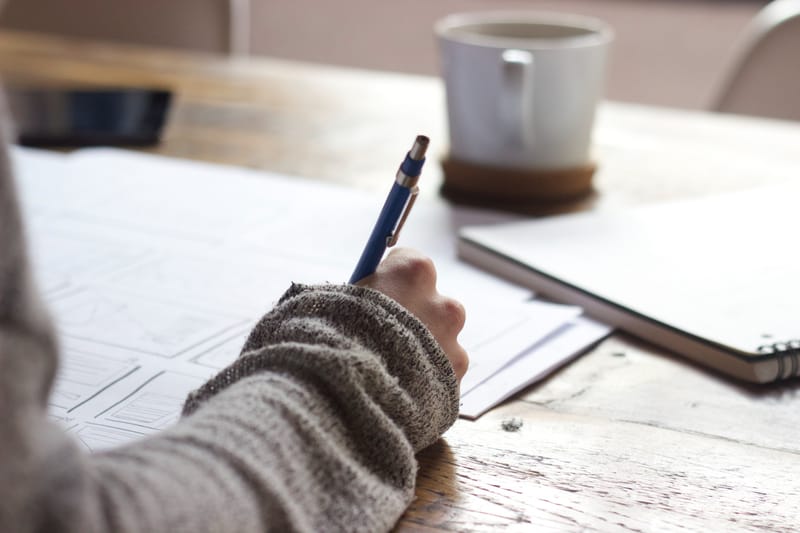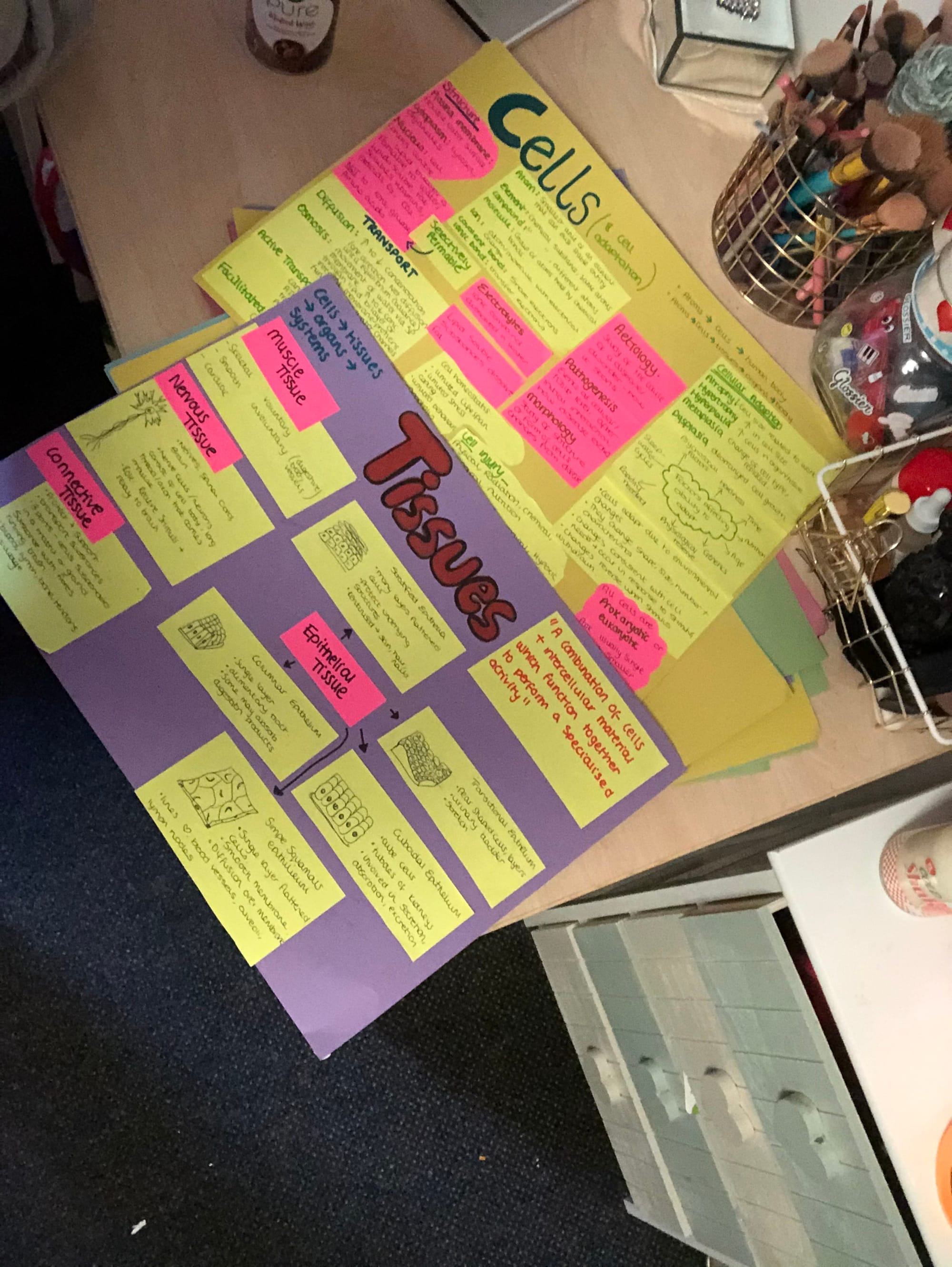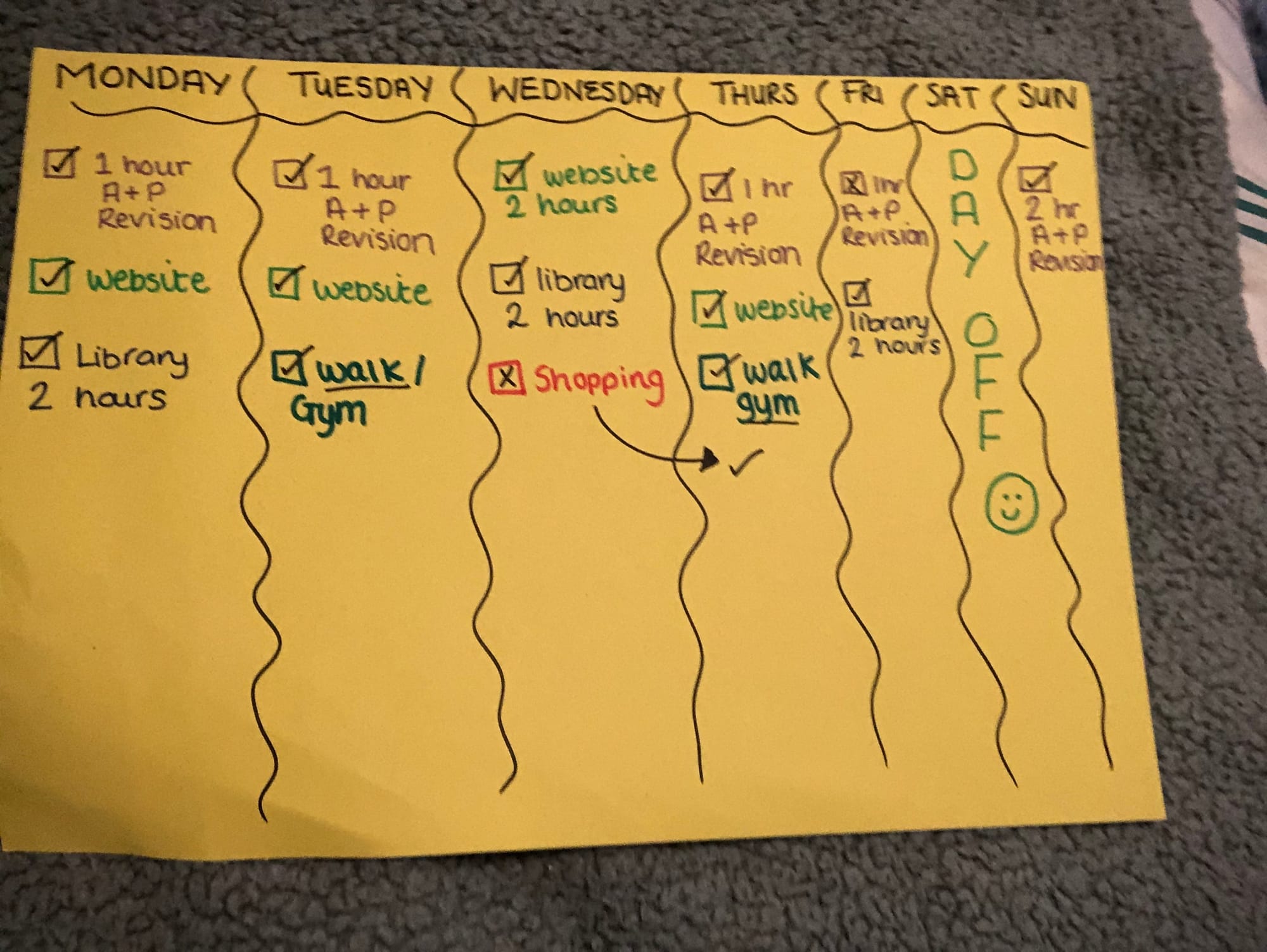Study skills

“Study skills are defined as strategies and methods to efficiently manage learning” (reference.com, N.D). I am now going to discuss study skills, including the different ways in which individuals learn and the types of learner, I will also be discussing the ways in which I learn best and my study skills.
There are 4 main types of learner; Visual, Auditory, Readers, Kinaesthetic – each of these may study in different ways. The way I study and learn demonstrates I am mostly a Visual and Kinaesthetic learner.
Some of the ways I prefer to study include:
- Mind Maps
- Posters
- Revision cards
- Images
- Demonstrations
- Looking at books with images
- Videos
- Colour coding
All of the above are study methods I use, this shows the visual aspect of how I like to learn as The Education Planner website states “if you are a visual learner, you learn by reading or seeing pictures. You understand and remember things by sight” (Education planner, 2019), This is demonstrated in the ways in which I study. When revising for a subject I write notes in lectures then when I get home I enjoy having visual examples and making things, such as posters that I will see every day as helps me remember the subject more and helps me retain more information for when needed in assessments and exams which is a benefit of using study skills I am comfortable with. I usually get home and make visual references from my notes and the lessons PowerPoints to ensure I understand what has been taught. A recent example of me using these skills is making posters related to my recent Anatomy module.
I also know I enjoy Kinaesthetic learning; “Kinaesthetic learning is a learning style often associated with learning by doing and learning through physical motion” (wise geek, 2020). A main part of the paramedic course is doing practical sessions, I find attending these are helpful when developing my learning as it replicates real life scenarios by getting hands on and learning how to assess and care for patients. This learning is practiced several times until we are comfortable, and the tutor is always happy to demonstrate for us and correct any mistakes to ensure what we are doing is safe and correct. This is beneficial as it ensures we have the academic and practical skills needed for the job. These learnt skills can then be practiced with friends and in the practice suites, as well as out on placement. I find placement is a vital part of studying as it allows opportunity to applied learnt skills onto real patients and find out what ways of patient care and interaction works for me. Always watching how various clinicians work is also beneficial helps me learn how I want to be, taking different working methods and skills of different people enables me to learn more and apply the skills I think are best into my way of working.
Another main aspect of study skills is Time as the Open university states “Managing your time is a key element in successful study” (Open University, N.D) important that when managing time, things that destress and relax are incorporated – this is sometimes going for a walk, visiting friends or going shopping. This ensures I don’t get overwhelmed with work and have things to look forward too. Finally, a good sleeping pattern is important when studying and managing time, as this enables me to relax and refresh, prevents work being rushed and ensures work is always up to my full potential.
Finally, I like to ensure I have organised before studying, having a clear study space helps me have a clear mind to produce work. This includes having a quick tidy up and putting away any distractions. I turn my phone on to do not disturb mode and log out of any distractions that may pop up on my laptop, or I will attend the library. This means I can fully focus on my work and all concentration will be on producing a good level of work.
Overall, I find it important to have good study skills as it ensures I fully understand what I am learning, and it means I have the information I need in a way that’s easy for me to work and revise from. It also means I hit deadlines and don’t get distracted. The main reason I think utilising these study skills is important is because it improves confidence and competence within the Paramedic role as everything we learn, and the ways in which we study give us transferable skills which are beneficial as a paramedic as well as in day to day life.
 Revision Posters
Revision Posters To Do list for the week!
To Do list for the week!
References;
- Reference.com (N.D) How is the term “study skills” defined? Available at: https://www.reference.com/world-view/term-study-skills-defined-340259008cc5a82d (Accessed 24/01/20)
- Education Planner (2019) Whats your learning sty
- le? The results Available at: http://www.educationplanner.org/students/self-assessments/learning-styles-quiz.shtml?event=results&A=6&V=10&T=4 (Accessed: 24/01/20)
- Wise Geek (2020) What is kinaesthetic learning? Available at: https://www.wisegeek.com/what-is-kinesthetic-learnin g.htm#didyouknowout (Accessed: 25/01/2020)
- The Open University ( n.d) Time Management skills: Planning and prioritising Available at: https://help.open.ac.uk/time-management-skills ( Accessed: 25/01/2020)



